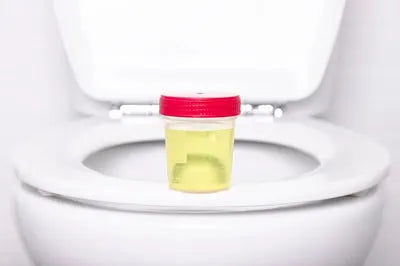Urinary incontinence is when you accidentally leak urine. Although it can happen to anyone, urinary incontinence, also known as overactive bladder, is more common in older people, and more so in women. Issues surrounding bladder control can be embarrassing for the one suffering and cause people to cut themselves off from their surroundings and avoid normal activities. But urinary incontinence can often be stopped or controlled.
Urinary Incontinence - A Brief Overview
Urinary incontinence is the loss of bladder control. The severity can range from occasional leaking of urine when you cough, sneeze or laugh to having an urge to urinate that is so sudden and urgent that you fail to make it to a toilet in time.
Although it is more common in older people, urinary incontinence is not an inevitable part of ageing. If urinary incontinence affects your day-to-day life, do not hesitate to see a doctor. For many people, simple lifestyle and dietary changes or medical care can treat the symptoms.
Common Urinary Incontinence Types
Many people experience occasional, minor leaks of urine while others may lose small to moderate amounts of urine more frequently.
Some common types of urinary incontinence are:
-
Urge Incontinence. You experience a strong, sudden urge to urinate, followed by an involuntary loss of urine. Urge incontinence is caused by a variety of factors, including bladder contractions, bladder inflammation, nerve damage, and certain medical conditions.
-
Overflow Incontinence. You experience frequent or constant dribbling of urine due to the inability to fully empty their bladder.
-
Stress Incontinence. You experience urine leaks when you exert pressure on your bladder during physical activity, such as coughing, laughing, or exercising.
-
Functional incontinence. A person has normal bladder control, but cannot access the toilet in time due to physical or mental impairment. This can be caused by factors such as mobility issues, limited hand dexterity, dementia, or a lack of accessible restrooms.
-
Mixed incontinence. You experience symptoms of more than one type of urinary incontinence - both stress incontinence and urge incontinence.
Urge Incontinence - Causes, Symptoms, and Management
This is also known as an overactive bladder.
-
Symptoms: In this, you may have a sudden, intense urge to pass urine followed by an involuntary loss of urine. You may experience a sudden, acute urge to pass urine, followed by involuntary urine loss. You may feel the need to urinate frequently, especially at night.
-
Causes: Damage to the bladder's nerves, damage to other sections of the nervous system, muscle damage, and ageing are all possible causes of urge incontinence.
Urge incontinence can be caused by a variety of conditions, including Parkinson's disease, multiple sclerosis, diabetes, and stroke. It can also be caused by bladder disorders such as infections and stones.
-
Treatment: Nerve stimulation can aid in the transmission of correct bladder signals to the brain. Urge incontinence can be managed with timed voiding and bladder training. You keep track of when you urinate and when you leak in a chart. Before any accidents happen, you recognise trends and empty your bladder. You can also retrain your bladder by gradually increasing the amount of time it takes you to go to the restroom. In some circumstances, medications and electrical stimulation can help. Surgery is only used in the most serious circumstances. The goal is to enhance the capacity of your bladder to store urine.
Overflow Incontinence - Causes, Symptoms, and Management
You may develop overflow incontinence if you can't empty your bladder. You may drip urine as a result of this.
-
Symptoms: Because your bladder does not empty entirely, you may have frequent or continuous dribbling of pee.
-
Causes: Weak bladder muscles, nerve damage, constipation, certain drugs, and disorders that obstruct the flow of urine, such as tumours or an enlarged prostate, are some of the reasons for overflow incontinence.
-
Treatment: Changing your diet to maintain good bowel motions may help you avoid constipation, which will relieve strain on your bladder. Nerve stimulation, which helps injured nerves transmit messages to the brain, is also a viable option.
Kegel exercises, which involve clenching your pelvic floor muscles and holding the position for a few seconds before releasing, can help strengthen weak bladder muscles. Kegel exercises are simple to perform and may be done anywhere. In some circumstances, pads, medicine, and surgery can be beneficial.
Stress Incontinence - Causes, Symptoms, and Management
In this type, urine leaks due to weakened pelvic floor muscles and tissues.
-
Symptoms: Urine leaks when you exert pressure on your bladder by sneezing, coughing, laughing, exercising or lifting something heavy.
-
Causes: Pregnancy and childbirth can weaken a woman’s pelvic floor muscles. Other things that can lead to stress incontinence are being overweight or obese, taking certain medications or, in men, prostate surgery.
-
Treatment: Making changes in your diet and losing weight if you are overweight can help take off extra pressure from your bladder. Kegel exercises can be used to strengthen pelvic floor muscles. These are easy and can be done anywhere. Kegel exercises include squeezing your pelvic muscles and then holding them in the position for a few seconds before releasing them.
Pads, adult diapers and vaginal inserts are helpful in keeping stress incontinence in check for women. A pessary is a device inserted in the vagina to reposition the urethra and help reduce leakage.
Biofeedback is a probe inserted to monitor when your bladder muscles squeeze. It is often used alongside kegel exercises.
Friends’ Adult Diapers - How Significant Are They in Managing Urinary Incontinence Challenges
Urinary incontinence can be challenging to go through, and Friends’ Adult Diapers are your key to surviving them comfortably.
Friends Adult diapers are comfortable, affordable, offer up to 16+ hours of protection, have a wetness indicator and odour lock.
Friends Adult Diapers are the makers of India’s no.1 leak-proof adult diapers. Friends have over two decades of experience in using innovation and technology to solve all urinary continence-related issues you may face.
Here’s how Friends’ Adult Diapers are the solution to all your urinary incontinence problems:
-
There will be no leaks: Friends diapers for the elderly are created with imported Super Absorbent Polymer of the highest quality. This Super Absorbent Polymer turns liquid to gel rapidly, sealing it inside the diaper and providing the wearer with a fast, leakproof, and dry feeling.
-
Comfort fit: Friends unisex adult diapers are ultra-soft, ultra-slim, and exceptionally absorbent. This combination allows users to wear them for lengthy periods of time, whether for a full day out, a long work trip, or a good night's sleep.
-
Skin-safe: We recognise how delicate your skin is. Most people are hesitant to use diapers because they feel their skin won't be able to withstand them. Friends Diapers for the elderly are antibacterial and aloe-vera treated for this reason. The antibacterial layer keeps your skin safe from infections, while the soothing properties of aloe vera keep rashes, itching, and redness at bay.
-
Sleep-friendly: Adult Diapers for Overnight are designed to absorb liquid for up to 16 hours. This ensures that users can get up to 12 hours of uninterrupted, peaceful sleep without worrying about leaks, stains, or having to get up frequently for toilet breaks.
















